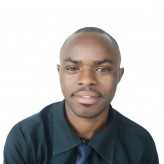
The UNDP Rwanda’s Climate app and Hackathon competition hosted recently in Kigali by ImpactHub Kigali, brought together climate scientists, young software and app developers across Rwanda to design and develop an innovative data and communications IT based system with technologies that enable weather and climate data & information sharing with farmers to better prepare themselves to severe weather related events such as floods, droughts, etc.
This initiative was part of an ongoing Meteo-Rwanda pilot project named: '' Internet of Things (IoT) for water management and climate change'' aims to install and test IoT sensors to effectively collect and disseminate micro-climate data that respond to the needs of farmers. 12 sensors have already been installed in Kayonza region, eastern Rwanda and are now collecting real-time soil moisture and temperature data.
Kayonza is one of areas in Rwanda known as most affected and vulnerable to droughts (National Risk Atlas), with 26% of the land in the area is exposed to severe drought and this put agriculture and high risk. Weather and climate data is critical for disaster risk management, early warning and for fast response to disaster, however micro level data is very difficult to collect only with meteorological stations.
Severe Weather Consult (SWC), a Rwandan private start-up company joined the Hackaton together with a team made of young software and mobile app. developers. SWC valued and considered this competition as a great opportunity to learn from a group of 65 participants and thereafter share our experience and lesson learnt since July 2015, the time SWC born.
The Hackaton competition was kicked off on the 20th February 2018 and last for three days. Close to 15 teams from 65 competitors were created and introduced to the design challenges and were given guidelines of the entire competition process that enable them to shape the ideas and came up with a weather/climate information mobile app.
On the second day, SWC team and other participants had the occasion to visit Kayonza District to talk to smallholders farmers, sector agronomists, sector authorities and see how IoTs sensors operate. Our team were able to get a better understanding of their users’ needs and ask for feedback on the prototype of the apps intended to be developed. On the third all participants worked on their final presentations and pitched for their proposed apps in front of a jury.
Only Six teams were selected to the next stage and were given means to further develop their mobile app and present their final prototypes with 15 days in front of a jury and SWC team got 7th place.
Lesson learned from Hackton climate app competition:
• SWC team has got an opportunity to interact with farmers, agronomists and other stakeholders to better understand their needs and design a mobile app that respond to it;
• SWC has got new ideas from various developers that enabled to better design and develop our SMS system and mobile app;
• SWC has learn a lot about IoT tools and how it can solve community challenges in areas like agriculture, weather/climate change, water management, etc);
• SWC has got UNDP Rwanda as a future partner.

Good Job? We are experimenting currently a similar initiative in Benin for warning system about water cut. I think that it's important for you to do a primary survey to know the real needs for farmers.
All farmers can they used the application mobile?
It's also important to use local language to send SMS.
Very interesting Dominique, what will you now change in your VIA Water project approach, taking the experience from the hackaton?
Hello Rachel!
It's good to hear from your ongoing initiative in Benin.
Our surveyed farmers It's true all farmers don't own phones allowing them to access devices applications. What we have done: 1. We have developped an SMS system for farmers with GSM phones and Mobile Android App advanced farmers (farmers with green houses and Agronomists). All those categories have the specific needs in terms of weather/climate information and how they use it. During our survey for example: Agronomist need to get regulary updates on weather and climate information/prediction to be able to advice and communicate farmers; Famers need information in SMS format to plan and decide for tomorrow's activities.
So, far we will make local lunguage messages for farmers. French and English for Agronomists.
Could you please tell me how your warning on what cut work? and appreciation form your customers? Do you have customers in place?
Warm regards,
The most important lesson learned from the hackton was on side of making our mobile android app. much more professional and make it easier for your customers to navigate it, interpret it. We are finalizing it and very soon, we will start validation phases with different customers.
Warm regards,